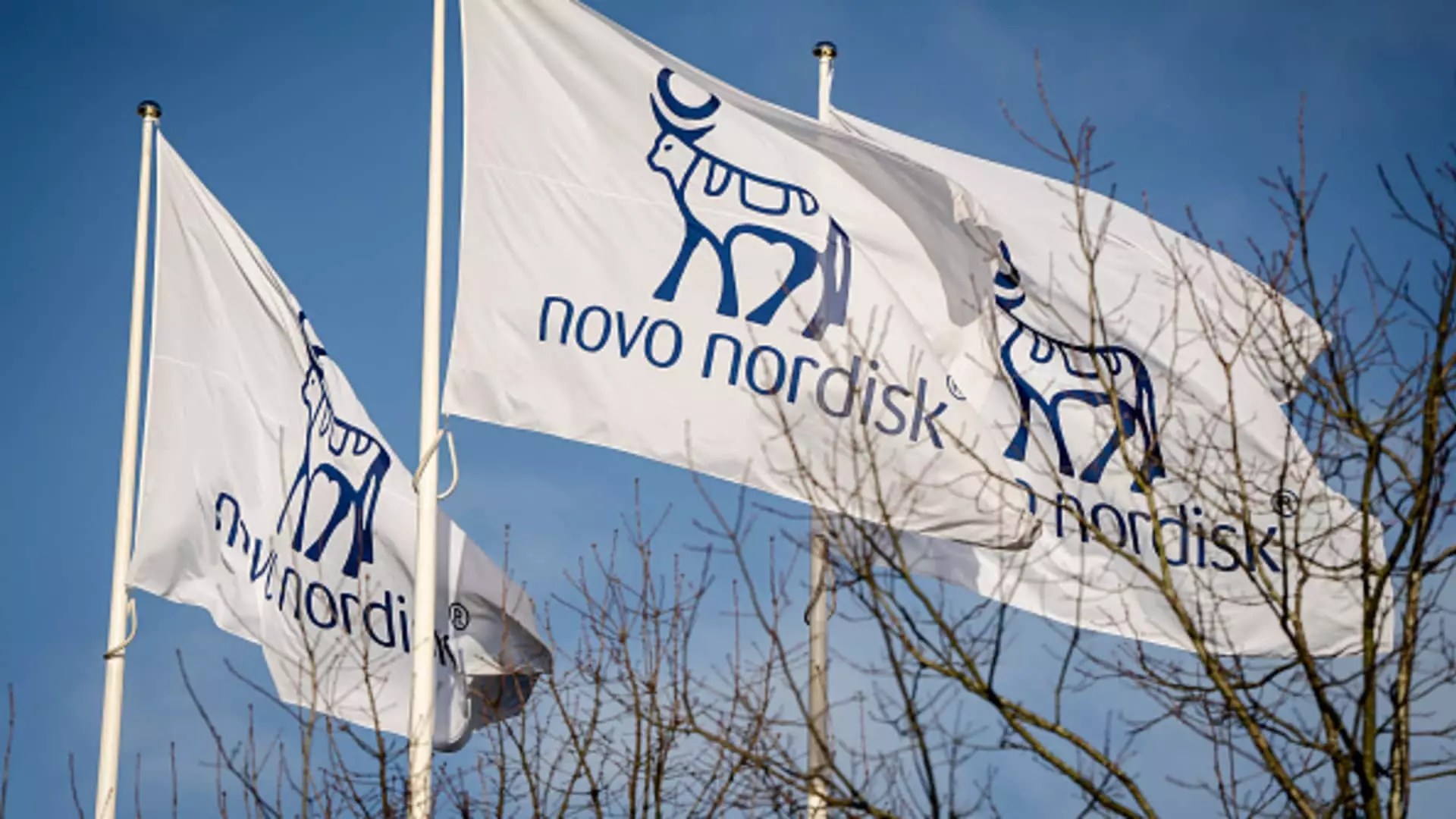Novo Nordisk’s recent announcement regarding Rybelsus is nothing short of revolutionary. During a late-stage clinical trial unveiled at the American College of Cardiology’s Annual Scientific Session, Rybelsus, already celebrated for managing Type 2 diabetes, showcased significant cardiovascular advantages. A 14% reduction in the risk of cardiovascular-related death, heart attacks, and strokes was observed compared to a placebo, following an average four-year treatment period. Such results are crucial; they not only enhance the quality of life for patients but also open doors for a comprehensive approach to managing multifaceted health challenges that arise from diabetes and heart disease.
This trial, involving over 9,600 participants, reveals that Rybelsus is not just another diabetes medication. It’s a potential savior for those grappling with the dual burdens of diabetes and heart complications. In an era where chronic conditions are on the rise, findings like these offer hope and an expanded toolkit for healthcare providers, especially when many patients are hesitant to use injectable medications.
The Appeal of Oral Medications
One of the most compelling aspects of Rybelsus lies in its oral format. Patients often hesitate to adhere to treatment plans that mandate injections, primarily due to fear, pain, or discomfort associated with needles. Stephen Gough, Novo Nordisk’s Global Chief Medical Officer, encapsulated this sentiment effectively: not everyone is keen on using injectables, and there is a distinct desire for oral alternatives.
The ability to provide patients with a choice is empowering. The discourse surrounding patient-centric care is growing stronger, emphasizing that treatment plans should reflect personal preferences and lifestyles. In a landscape where patient autonomy is increasingly prioritized, the introduction of effective oral therapies like Rybelsus fosters a sense of control, significantly impacting adherence to treatment regimens.
A Competitive Marketplace
Rybelsus is entering a crowded field, with competitors like Eli Lilly also looking to develop oral GLP-1 medications. The demand for innovations in diabetes medication is high, fueled by the growing prevalence of obesity and heart disease—often intricately linked with diabetes. Each new advancement adds layers of complexity to patient care, as healthcare professionals must navigate choices that best suit their patients’ unique needs.
A strong competition encourages not only innovation but also the continuous quest for improvement in efficacy and safety profiles. In this pursuit, Rybelsus shows promising potential, not merely for diabetes management but also as a comprehensive solution to combat cardiovascular risks—this could redefine the standard of care.
Mechanism of Action and Side Effects
GLP-1 receptor agonists, like Rybelsus, function by mimicking gut hormones to lower blood sugar levels while expending a positive influence on appetite regulation. This dual benefit cannot be overstated, particularly as obesity emerges as a global epidemic. The clinical data highlight impressive impacts, such as a 26% reduction in non-fatal heart attacks and a 12% reduction in strokes. Yet, it’s essential to maintain transparency regarding potential side effects: gastrointestinal issues like nausea and diarrhea have been noted. However, these side effects appear manageable, often not leading to the discontinuation of therapy.
Rybelsus warrants a keen eye toward its long-term effects, especially in a diverse patient population, as the absence of kidney function outcomes did not diminish the importance of cardiovascular results.
Socioeconomic Implications
The potential of Rybelsus to mitigate cardiovascular risks opens up a conversation about the socioeconomic implications of diabetes treatment. Many patients struggling with diabetes also experience economic hardships, leading to underutilization of healthcare services. With an oral medication that provides significant cardiovascular benefits, healthcare providers could foster improved outcomes, potentially reducing the overall burden on the healthcare system.
Moreover, patients who feel more empowered to manage their health are likely to engage with healthcare services more actively. This creates a domino effect that can lead to proactive community health initiatives aimed at education, prevention, and management strategies that prioritize both physical and mental health.
The Bigger Picture: Reshaping Healthcare Narratives
The emergence of Rybelsus is not just about a new diabetes pill; it reflects a significant evolution in how we understand and approach chronic disease management. We are witnessing a paradigm shift where treating the multi-dimensional aspects of diseases—such as the intertwining of diabetes and cardiovascular health—takes center stage. The hope is that Rybelsus’ success will not only benefit individual patients but also pave the way for more innovations in care delivery models. Complex health issues demand sophisticated solutions, and Rybelsus appears to answer that call.
In essence, these advancements in diabetes medications are crucial for not only individual health but for the broader healthcare landscape. The specific benefits of Rybelsus highlight an opportunity to shift narratives around chronic disease management, advocating for holistic approaches that recognize the interconnectedness of conditions affecting millions worldwide.


Leave a Reply